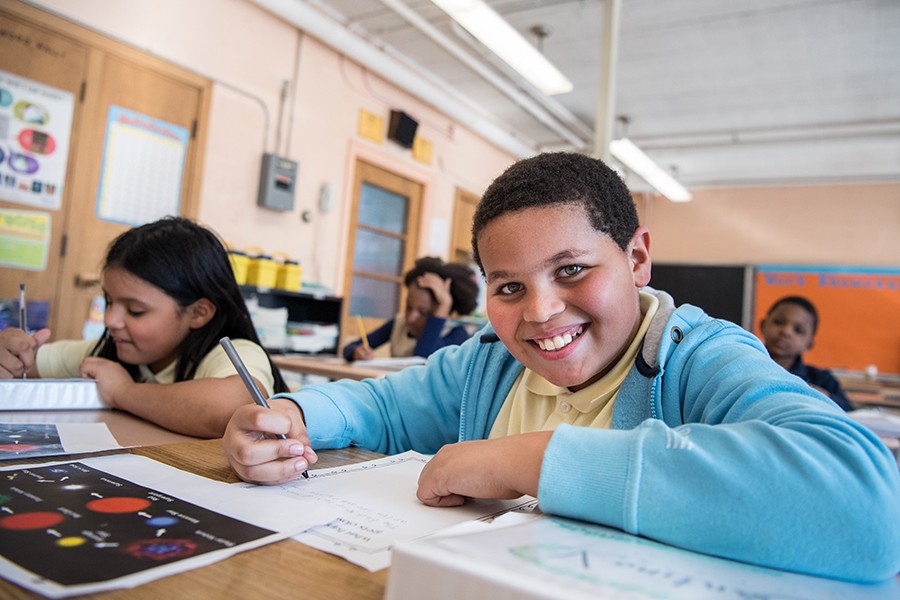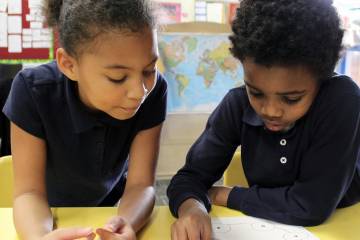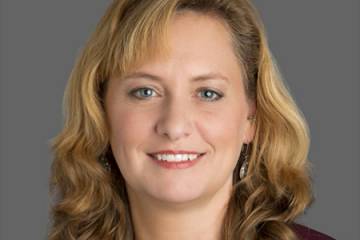For more than 40 years, the Johns Hopkins Center for Talented Youth had relied on test scores as a make-or-break qualifier for its academic enrichment programs. But when it came to reaching high-potential students in Baltimore City, that formula just didn't work, writes CTY interim director Amy Shelton in an op-ed for The Baltimore Sun published this week.
"We knew there were CTY-level academically advanced students in Baltimore City schools, but our identification methods missed them," she writes. "We suspected the tool we were using for identification, the above-grade-level test, might be the problem."
In her op-ed, Shelton explains that aptitude and achievement tests—including those used by CTY and in college admissions—have a pronounced socioeconomic and cultural bias. That's why, when CTY developed the free Baltimore Emerging Scholars program five years ago, the nonprofit opted to bypass testing entirely. The program and its new spinoff summer program instead rely on school recommendations to identify academically gifted Baltimore City elementary schoolers.
Today, the Baltimore Emerging Scholars program reaches more than 500 students in 16 elementary schools with its before- and after-school enrichment programming, according to Shelton, who is an expert cognitive psychologist who became interim director of CTY last December. The success of that model inspired the new Baltimore Emerging Scholars Summer Program, which opens its doors next month for 180 students in West and Southeast Baltimore. The free, six-week program, funded by a grant from the Maryland State Department of Education, will provide small interdisciplinary classes in writing, science, and math for students in grades 1-3.
More from Shelton in The Sun:
Read more from The Baltimore SunWe hope that as our data continue to show that these students—identified as academically advanced without the use of CTY's above-grade-level tests—can perform as successfully as their peers from wealthier communities, we can use these strategies to support students in schools with traditionally low identification rates across the U.S.
Advanced learners exist in all communities, but we have little hope of closing the often-cited "excellence gap" if we're unable to identify these students and provide them with the support they need to realize their full potential.
Posted in Voices+Opinion, Politics+Society










